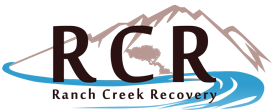Breaking Free from Opioid Dependence
Understanding Opioid Addiction: Opioid addiction hijacks the brain’s reward system, creating a relentless cycle of craving and dependency that devastates lives and communities.
Identifying Opioid Addiction: Sudden mood swings, secretive behavior, and unexplained financial issues often signal the onset of opioid addiction, urging families to seek professional help immediately.
Support for Opioid Addiction: Families can support addicts by fostering open communication, encouraging professional treatment, and creating a stable, non-judgmental environment to facilitate recovery and long-term sobriety.
Causes and Factors of Opioid Addiction: Prescription misuse, genetic predisposition, and socioeconomic stressors intertwine, creating a potent brew that fuels the relentless grip of opioid addiction, necessitating comprehensive rehab interventions.
Street Names for Opioids: Users often refer to opioids by street names like “Oxy,” “Percs,” “Vikes,” “Smack,” and “China White.”
Next Steps for Those Addicted to Opioids: Seek professional help immediately to break the cycle of opioid addiction, utilizing comprehensive rehab programs that offer medical detox, counseling, and long-term support for sustainable recovery.
Client Reviews
Navigating Payment and Insurance
We accept various insurance plans, including Aetna, Anthem BlueCross, Cigna, and more. Our team will help you verify your coverage and understand your out-of-pocket costs, making the financial aspect of treatment as stress-free as possible. We are committed to helping you access the care you need in our substance abuse inpatient programs.



Understanding Opioid Addiction
Opioid addiction, a chronic neurological disorder, manifests through uncontrollable cravings and continued use despite adverse effects. Characterized by physical dependence, it alters brain chemistry, leading to tolerance and withdrawal symptoms. Individuals often experience intense euphoria initially, followed by a need to consume higher doses to achieve the same effect. Behavioral changes include neglecting responsibilities, social isolation, and engaging in risky activities. Understanding these characteristics is vital for those considering opioid addiction rehab to achieve lasting recovery.
Physiological Dependency and Withdrawal
Withdrawal symptoms from opioids can be severe and varied, including anxiety, muscle aches, sweating, nausea, and insomnia. The withdrawal process often begins within hours of the last dose, peaking around 72 hours, and can last for weeks. People become highly dependent on opioids due to their powerful effects on the brain’s reward system, making it difficult to function normally without the drug. This dependency drives the compulsive need to use opioids, despite knowing the harmful consequences. The intense physical and psychological grip of opioids underscores the necessity for comprehensive opioid addiction rehab programs to support recovery.
Commonly Misused Opioids
- Oxycodone: Known on the street as “Oxy” or “Hillbilly Heroin.”
- Hydrocodone: Referred to as “Vike” or “Norco.”
- Heroin: An illegal opioid known as “Smack” or “Dope.”
- Fentanyl: An extremely powerful synthetic opioid called “China White” or “Dance Fever.”
Do Opioids Cause Depression?
Chronic opioid use alters brain chemistry, potentially leading to depression. Studies reveal that long-term opioid users exhibit higher rates of depressive disorders compared to non-users. This occurs because opioids affect the brain’s reward system, diminishing natural dopamine production. Understanding this connection helps tailor more effective recovery strategies.
Opioid Detox and Withdrawal
Opioid Detoxification
Medical professionals initiate the detox process by assessing the patient’s health and addiction severity. They may use medications like methadone or buprenorphine to ease withdrawal symptoms. This phase typically lasts from a few days to a week, depending on the individual’s opioid use history. Medical supervision ensures safety and comfort, reducing the risk of complications. The goal is to stabilize the patient, preparing them for the next steps in opioid addiction rehab.
Withdrawal Symptoms
Intense cravings, sweating, and restlessness often dominate the initial phase. Insomnia and irritability can disrupt daily life, while gastrointestinal distress, including diarrhea and vomiting, adds to the discomfort. Emotional turmoil, marked by depression and anxiety, frequently accompanies these physical symptoms. Medical support can significantly alleviate these challenges, making the process more manageable.
What Causes an Opioid Overdose?
Consuming high doses or combining opioids with other substances like alcohol or benzodiazepines can overwhelm the body’s ability to manage respiratory function. The brain’s opioid receptors, when excessively activated, suppress the respiratory system, leading to slowed or stopped breathing. Using opioids after a period of abstinence or consuming contaminated or unusually potent drugs dramatically increases overdose risks. Lack of awareness about these dangers often contributes to accidental overdoses, highlighting the need for education and preventive measures in opioid addiction treatment.
Inpatient vs. Outpatient Treatment
Inpatient Treatment
Involves staying at a facility for a few weeks to several months, providing a structured environment with 24/7 medical care. This setup is essential for people with severe addiction or mental health issues. Patients follow a strict schedule that includes one-on-one therapy, group counseling, and activities like yoga and meditation. The controlled setting helps reduce exposure to triggers and temptations, making it easier to focus on recovery.
Outpatient Treatment
Allows individuals to live at home while attending scheduled treatment sessions. This option is more flexible and suitable for those with milder addiction or strong support systems. Outpatient programs vary in intensity, from standard therapy sessions to more intensive programs that meet multiple times a week. These sessions can include individual counseling, group therapy, and educational workshops.
Comparing Inpatient and Outpatient Treatments
- Benefits: Inpatient treatment’s immersive nature often leads to higher initial success rates due to comprehensive support and fewer external stressors. Outpatient treatment’s flexibility allows individuals to continue with work, school, or family responsibilities.
- Cost: Inpatient treatment is usually more expensive due to the residential aspect and continuous care, while outpatient programs generally cost less, making them more affordable for those without extensive insurance coverage.
Treatment for Co-occurring Disorders
Integrated treatment addresses both opioid addiction and co-occurring mental health disorders, such as depression or anxiety, simultaneously. Therapists employ cognitive-behavioral therapy (CBT) and medication-assisted treatment (MAT) to stabilize mood and reduce cravings. Facilities often offer personalized care plans, combining individual therapy, group sessions, and holistic approaches like mindfulness and exercise. This comprehensive strategy improves long-term recovery rates by tackling the root causes of addiction and mental health issues, fostering a balanced, healthier lifestyle.
Non-12-Step Approach to Opiate Rehab
Ranch Creek Recovery offers an evidence-based holistic opioid rehab approach in California, which is non-12-step based. This means our opioid abuse treatment programming employs therapeutic modalities that are scientifically proven to work. The treatment programming will include in-depth psychological and psychiatric assessments, cognitive behavioral therapy, and dialectical behavioral therapy.
We also offer a number of transformative treatment elements, including:
- Equine Therapy
- Yoga
- Meditation
- Exercise
- Amino Acid Therapy
- Family therapy sessions
Using the non-12-step approach will provide more individualized opioid disorder treatment and focus on treating the underlying conditions of each patient. The treatment team will identify any core issues related to mental health, social, medical, familial, or other areas of a person’s life that need to be addressed and treated.
As an additional layer of support, we do encourage our patients to participate in support communities for their continued recovery, such as SMART Recovery or 12-step meetings that are recommended by the Substance Abuse and Mental Health Services Administration, but we leave the choice up to you.
Impact on Families and Relationships
Opioid addiction profoundly disrupts family dynamics and strains relationships. Trust erodes, communication breaks down, and emotional bonds weaken. Families often face financial hardships due to treatment costs and lost income. Children may experience neglect or trauma, affecting their development and well-being. Support systems become crucial as loved ones navigate the complexities of recovery together. Rebuilding trust and fostering open communication are essential for healing. The journey to recovery demands resilience and commitment from both the individual and their family, reshaping relationships and restoring hope.
Long-Term Recovery and Relapse Prevention
Counseling and support groups play a vital role in relapse prevention, offering continuous emotional and psychological support. Families benefit from education on addiction, enabling them to recognize warning signs and provide timely intervention. Structured routines and healthy coping mechanisms reduce relapse risks. Medication-assisted treatment (MAT) can stabilize brain chemistry, aiding long-term recovery. Regular check-ins with healthcare providers ensure ongoing progress and address any emerging issues. Engaging in community activities fosters a sense of belonging and purpose, crucial for sustaining sobriety. Effective relapse prevention requires a collaborative effort, integrating professional guidance and familial support.
Life After Rehab
Navigating post-rehab life often involves rebuilding trust and re-establishing roles within the family. Relationships may face strain as loved ones adjust to new dynamics and responsibilities. Open communication becomes crucial, allowing for shared understanding and mutual support. Family therapy sessions can provide a structured environment to address lingering issues and foster healing. Relapse fears may persist, but ongoing support groups offer a safety net. Celebrating small victories together can strengthen bonds and reinforce a collective commitment to long-term recovery.
We Help You Coordinate Travel and Get Here Fast
To help remove any barriers you may have getting to treatment, we’ll guide you from the first phone call and help you arrive at our holistic opioid addiction treatment center safely.
If you’re interested in learning more about Ranch Creek’s non-12-step rehab for opioid addiction, please contact us today by filling out a form or giving us a call to speak with a representative. We can walk you through our admission process as well as discuss your insurance coverage options.















